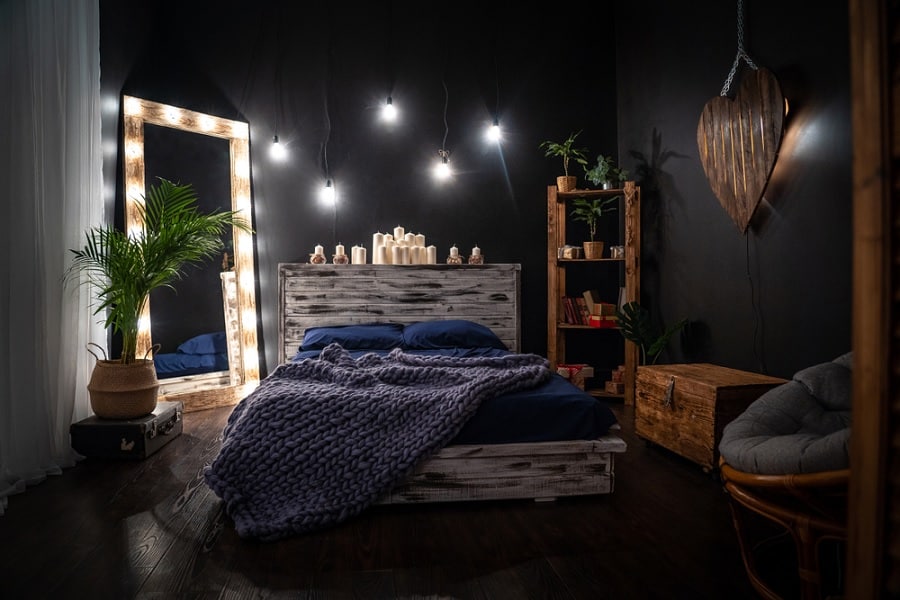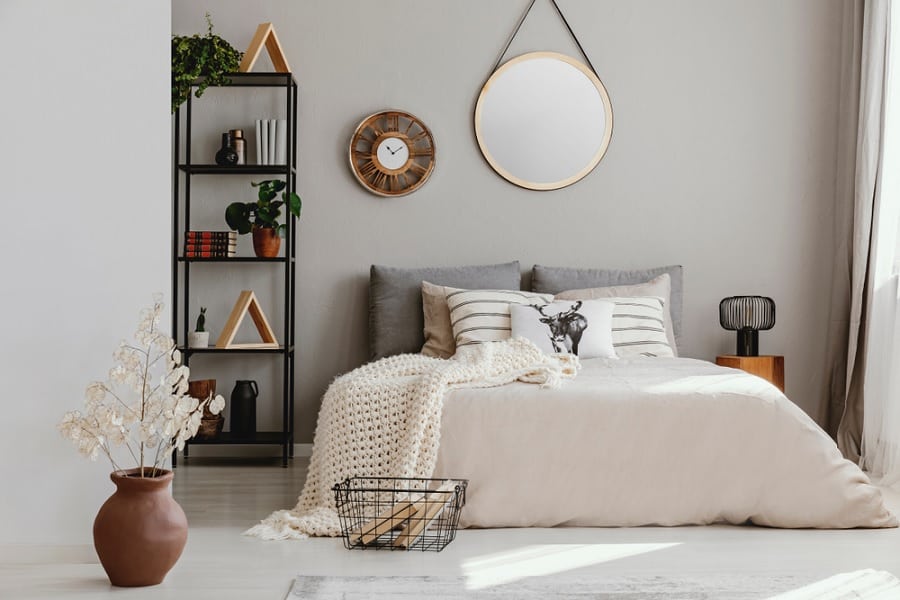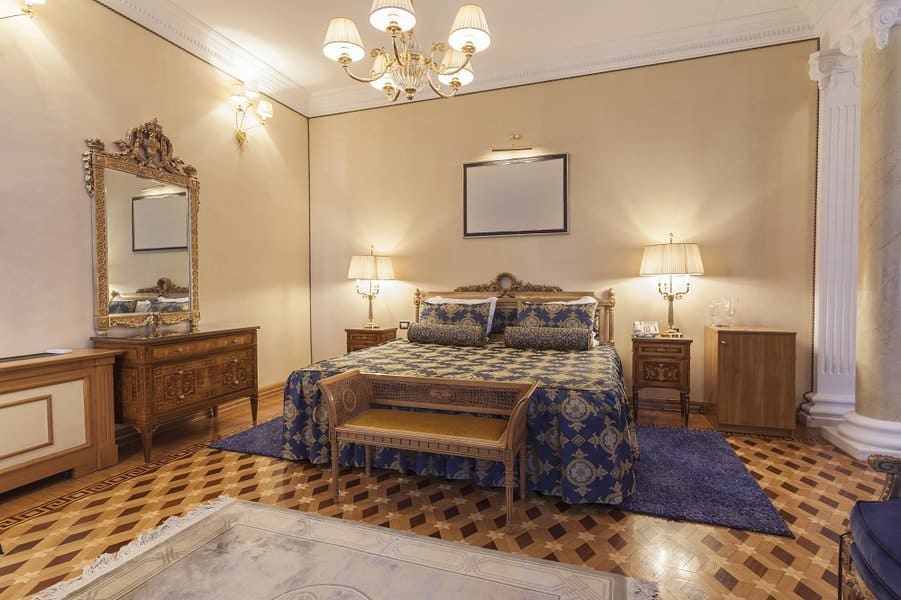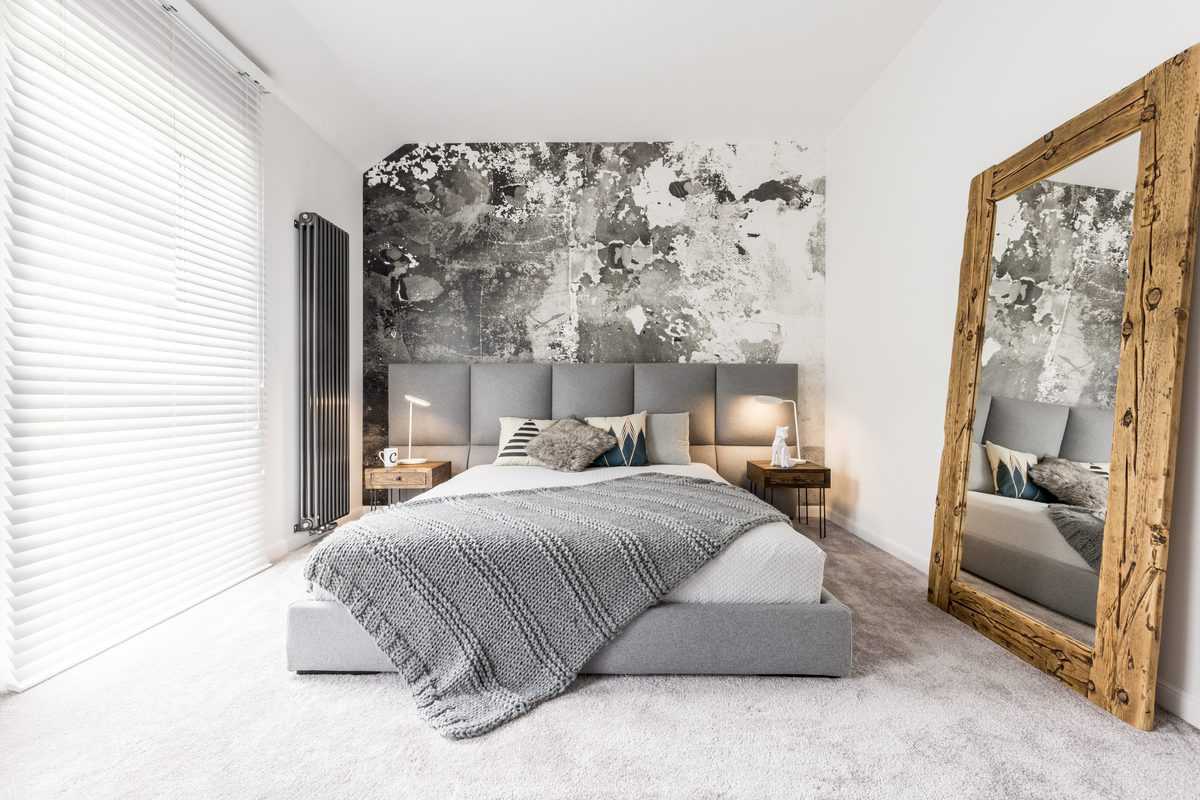
Where To Put a Mirror in a Bedroom?
Mirrors add a lot of light, dimension, and energy to the bedroom. Although any mirror can add these elements to your room, it’s helpful to consider the types of mirrors available and where to put a mirror in a bedroom for maximum impact.
Whether you ascribe to Feng Shui or Vastu Shastra principles—or simply want to know which bedroom mirror position interior designers recommend most—the following tips will help you designate the best spots for your bedroom mirrors.
See more about - What To Put In An Empty Corner Of The Bedroom
Table of Contents
Maximizing Light With Thoughtful Bedroom Mirror Placement

A dark bedroom may be a welcome thing when you’re sleeping, but it can be a downer to have a bedroom with little natural light during the daytime. Knowing where to put a mirror in the bedroom can really maximize the available natural light.
If you don’t have to worry about small children or pets knocking it over, lean a large mirror on the wall opposite your bedroom window. Not only will it double the daylight, but it will also make the entire room look larger.
Although propping a big mirror against the wall is a popular interior design trend, large hanging mirrors are equally useful. Securely anchored, they’re also safer than mirrors propped against a wall.
Tuck small mirrors into your shelf or dresser-top displays. Every little mirror accent adds some degree of light reflection.
Harmonizing Your Bedroom with Feng Shui Mirror Principles

Feng Shui Basics
Feng Shui is a concept birthed from an ancient Chinese poem that speaks about the connection and flow that exists between people and the environment. Feng means “wind” and Shui means “water,” both elements of motion and life.
There are dozens of different schools of Feng Shui, and some of their teachings may contradict one another. For example, a classical Feng Shui expert may base the optimal flow of your home’s energy (Qi) on nearby topographical landforms, while an Intuitive Feng Shui practitioner will focus on the energy each possession brings into the house.
Compass directions also play a part in determining home layout:
North wall: meditation room or master bedroom
Northwest: office or master bedroom
Northeast: study or child’s bedroom
East wall: study or kitchen
Southeast: kitchen, study, or bedroom
South wall: dining room, office, or bedroom
Southwest: family room or dining room
West wall: dining room, living room, or child’s bedroom
A Bagua is an energy map that shows eight areas of your home. Each area corresponds with certain life circumstances, colors, seasons, numbers, shapes, and earthly elements. You are at the center of every bagua and considered the ninth area.
In Feng Shui philosophy, the master bedroom is the most important room in the home. Bedroom Feng Shui principles center around this space being the room that’s most personal and the one where most of us spend the most time.
Feng Shui Bedroom Mirror Placement
When it comes to good Feng Shui mirror placement, most schools of thought agree that it’s bad Feng Shui to have a mirror face the bed. An exception is made when you have a small bedroom and it’s not possible to place your bed in the correct position. In that instance, a mirror can help you see the room’s entryway from the bed—a vital element in bedroom Feng Shui.
Regardless of the school of Feng Shui, if a mirror makes you feel uncomfortable while sleeping, you can always cover it with a scarf before you go to bed. Another important principle is to avoid placing Feng Shui Bagua mirrors indoors. Many of these framed mirror amulets are beautiful but intended for exterior use only.
Because Feng Shui teaches that bathroom drains drain away whatever blessings are attached to that compass area in your home, hang a full-length mirror on the outside of the bathroom door. This will keep energy from entering the bathroom and going down the drain. Just make sure that the mirror doesn’t reflect a bed, door, or other mirror.
Creating Balance With Vastu Shastra Solutions

Vastu Shastra, a practice thousands of years older than Feng Shui, literally means “dwelling science” and is the traditional Indian approach to architecture and interior design. It is believed that adhering to these holistic disciplines increases the amount of good energy flowing through your home.
According to Vastu traditions, mirror placement is one important factor to consider when designing your home. However, these principles may vary by room. For example, in the living room, a mirror should be placed on the north wall. But in the bedroom, you should always avoid placing a mirror in front of the bed.
Ancient Vastu Shastra traditions dictate that seeing your reflection while lying in bed causes arguments between you and your partner. It’s also believed to cause nightmares and health problems. To avoid these disruptions, do not place a mirror in front of your bed. Also avoid having reflective surfaces in front of the bed, such as a TV screen, for the same reason.
Mirror height is also important. Ideally, a bedroom mirror should be placed four to five feet above the floor. Never place two mirrors directly across from each other because that can invite negative energies into the bedroom.
Finally, avoid mirrored doors on a wardrobe, closet, or almirah (Indian storage cupboard) as they may reflect negative energy when you swing the door open.
Interior Designer Bedroom Mirror Placement Tips

Interior designers give careful thought to the way they place mirror panels in a room. A favorite trick is to strategically use mirrors to create a sense of depth. A large wall mirror gives the illusion of another door opening into an adjacent space. This illusion makes a single room feel like it’s joined to another room of equal size.
Never place a bedroom mirror where it will reflect a cluttered corner or other unsightly areas. For example, don’t stand a large floor mirror directly across from an adjoining bathroom. These two spaces should be kept separate, literally and visually. Nobody wants to look at the toilet before even getting out of bed in the morning.
Other ways to creatively display bedroom mirrors include:
- A mirrored room divider is a portable way to provide a sense of depth. Use it to separate a sitting area from your bed area, or simply open it up, accordion-style, as a decor element along one wall.
- Think out of the box when deciding where to put mirrors in your bedroom. Hang a long mirror on the wall over your nightstand instead of assuming it must hang over the dresser.
- Create a vanity table or mirrored dresser by propping a beautifully framed mirror on top of a plain dresser, desk, or dressing table.
- Mirrored furniture can be quite elegant but avoid the temptation to fill your bedroom with mirrored fronts. Limit mirrored pieces to one dresser or perhaps two small nightstands—but not both. Mirrored furniture surfaces also do a great job of reflecting light in a dimly lit bedroom.
- Hang multiple mirrors over your bed instead of a headboard. A round mirror collection in varying sizes adds a whimsical vibe to a modern bedroom, while framed mirrors in different shapes and sizes take the room in a vintage direction. You can always rely on just one elegantly framed large mirror to serve as an impressive headboard.
- As long as you don’t ascribe to Feng Shui or Vastu Shastra traditions, hanging a long rectangular mirror on the closet door is a great idea. It frees up wall space for artwork and furniture and is in a convenient location for dressing.
See more about - 7 Best Ceiling Fans For The Bedroom
Where To Put a Mirror in a Bedroom FAQs
Where should I place a mirror in a bedroom?
The ideal placement for a mirror in a bedroom can vary depending on your goals and the room’s layout. One common location is on or near the closet or wardrobe doors. This not only adds functionality for dressing and checking your outfit but also creates an illusion of a larger space. Another popular spot is across from the bed. This can create a focal point, reflect natural light from windows, and make the room feel more open. Avoid placing a mirror directly opposite the bed if it reflects a cluttered or unattractive area. Instead, choose a wall with an appealing view or decor.
How can I use mirrors to make my bedroom look bigger?
Mirrors can work wonders to make a small bedroom appear more spacious. Consider placing a large mirror on one wall, ideally opposite a window or source of natural light. This reflects the light and makes the room feel brighter and airier. Additionally, mirrored furniture or decor, such as mirrored dressers or nightstands, can create a sense of depth and openness. Be mindful not to overdo it, though, as too many mirrors can be overwhelming.
Can I put a mirror on the ceiling in my bedroom?
While some people may consider installing a mirror on the ceiling for a dramatic effect, this choice can be divisive. Mirrors on the ceiling can create a unique ambiance, but they are not suitable for everyone. Some find them distracting or even uncomfortable. If you decide to install a ceiling mirror, make sure it is securely attached and consider the potential visual impact on the overall bedroom design. It’s essential to consult with a professional to ensure safe and proper installation.
